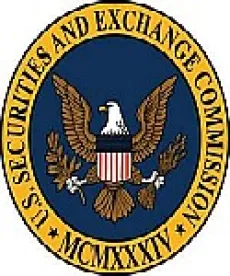On April 11, the SEC staff released new Compliance and Disclosure Interpretations ("CDIs")1 regarding the intrastate offering exemption in Section 3(a)(11) of the Securities Act of 1933 and the related regulations (the "Intrastate Exemption"). These CDIs will be important to the interpretation of state crowdfunding rules, including the Wisconsin crowdfunding law2 that was enacted late last year.
Background
In November 2013, the Wisconsin legislature passed new legislation enabling businesses to raise money through "equity crowdfunding," the practice of selling equity securities to large numbers of investors, with each investing a relatively small amount of money. The Wisconsin crowdfunding law is expected to become effective June 1, 2014. The SEC has proposed federal crowdfunding rules as well, but it could be some time before those rules are finalized. One important aspect of the Wisconsin crowdfunding law is that the issuer and all investors must be resident in the State of Wisconsin. This aspect of the state crowdfunding laws is dictated by federal law: a state crowdfunding offering is only exempt from federal registration requirements if it complies with the Intrastate Exemption.
Since the passage of the Wisconsin crowdfunding law, it has been unclear exactly how intrastate crowdfunding offerings can be advertised. While general advertising or general solicitation is not prohibited by the Intrastate Exemption, any general advertising or solicitation would need to comply with the requirement that offers be made only to persons resident within the issuer’s home state. Since the Wisconsin crowdfunding rules specify that offers can be made by use of an Internet portal, which by definition can be accessed anywhere, it has been unclear how an issuer can comply with the requirement to direct the offering only to Wisconsin residents. The new CDIs released by the SEC staff shed light on this conundrum.
Intrastate Offering Compliance and Disclosure Interpretations
The new CDIs reveal the SEC staff’s stance regarding the use of Internet crowdfunding portals and the use of websites and social media in connection with intrastate crowdfunding offerings. They reiterate that general advertising or general solicitation is permissible under the Intrastate Exemption, so long as the advertising or general solicitation complies with the requirement that offers can only be made only to persons resident within the issuer’s home state.3
The CDIs further clarify that an Internet crowdfunding portal of the type contemplated by the Wisconsin crowdfunding rules is allowable under the Intrastate Exemption; however, the portal must implement "adequate measures" so that offers of securities are made only to persons resident in Wisconsin. The SEC staff goes on to explain that "[i]n the context of an offering conducted in accordance with state crowdfunding requirements, such measures would include, at a minimum, disclaimers and restrictive legends making it clear that the offering is limited to residents of the relevant state under applicable law, and limiting access to information about specific investment opportunities to persons who confirm they are residents of the relevant state (for example, by providing a representation as to residence or in-state residence information, such as a zip code or residence address)." Internet portal operators will need to review these requirements and implement appropriate compliance measures, such as requiring users to create accounts and restricting access to offering information until the user has verified his or her residence information.
The use of an issuer’s website or social media presence to offer securities in a Wisconsin crowdfunding offering is generally not permissible under the Intrastate Exemption. While an issuer can still use its website and social media to advertise its market presence "in a broad, indiscriminate manner," an issuer participating in an intrastate equity crowdfunding offering must be careful not to make an offer of securities via these media. In particular, "using such established Internet presence to convey information about specific investment opportunities would likely involve offers to residents outside the particular state in which the issuer did business." Accordingly, referring to the offering of securities on the issuer’s website or through the issuer’s Twitter or LinkedIn account would likely result in the loss of the Intrastate Exemption.
Conclusion
Any issuer that is interested in conducting an equity crowdfunding offering in Wisconsin will need to exercise extreme caution to ensure that it is complying with both the requirements of the Intrastate Exemption federally and the state law in Wisconsin. Even an inadvertent offer to an investor outside of the State of Wisconsin could have severe consequences; for example, the entire offering may become subject to the onerous federal registration requirements, and failure to comply with federal law requirements could create an investor rescission right.
Although the CDIs help clarify the general requirements of the Intrastate Exception, difficult compliance issues remain. For example, an Internet portal operator will need to ensure that, once a potential investor has verified his or her residence, the investor does not then continue to use the portal after moving out of state. Crowdfunding issuers will also need strict policies to ensure that individual employees do not post offering information to unrestricted websites or in social media. Issuers and operators of Internet portals are advised to consult with counsel to ensure compliance with federal and state law.
Issuers should also bear in mind that the securities offering exemptions discussed above are not exemptions from the antifraud provisions of state and federal law. Any issuer pursuing a crowdfunding offering should seek legal assistance to comply with the disclosure requirements of the applicable crowdfunding law, as well as the antifraud provisions of the securities laws.
1 CDI Questions 141.03, 141.04 and 141.05.
2 2013 WISCONSIN ACT 52.
3 CDI Question 141.03.


 />i
/>i
